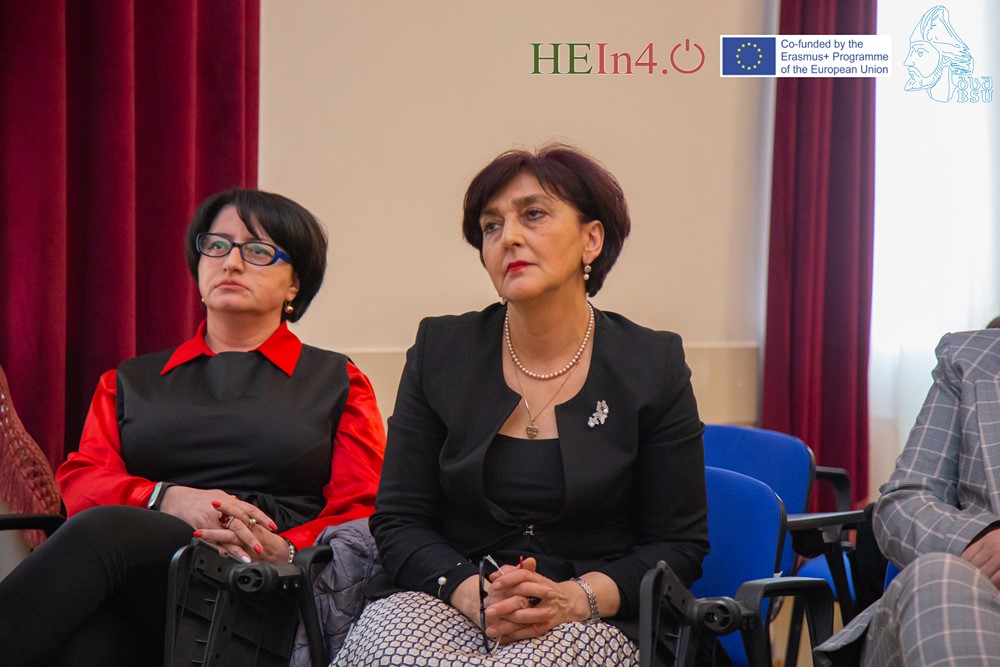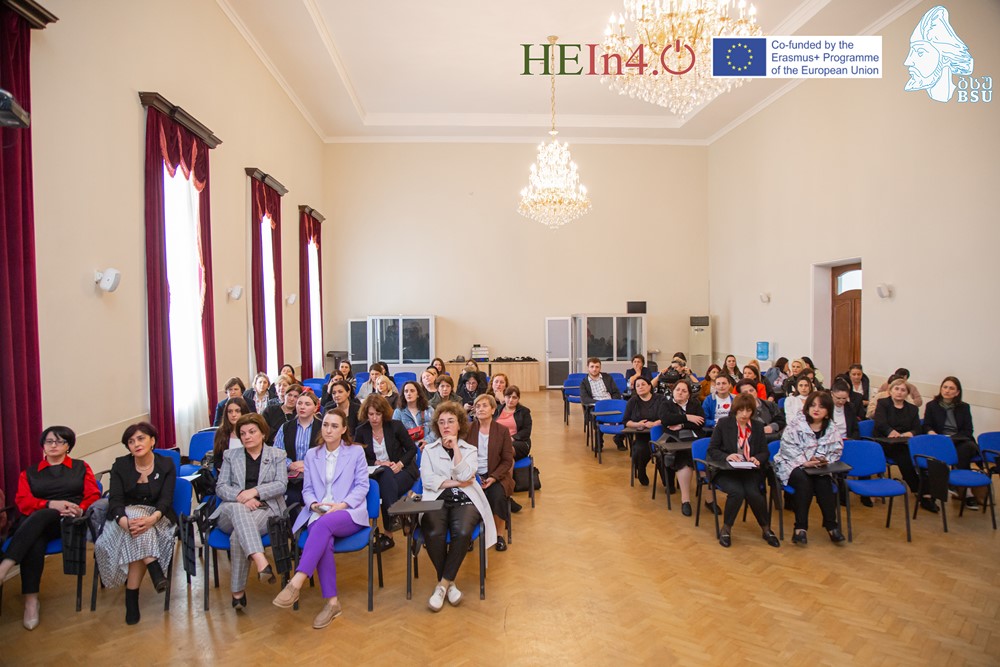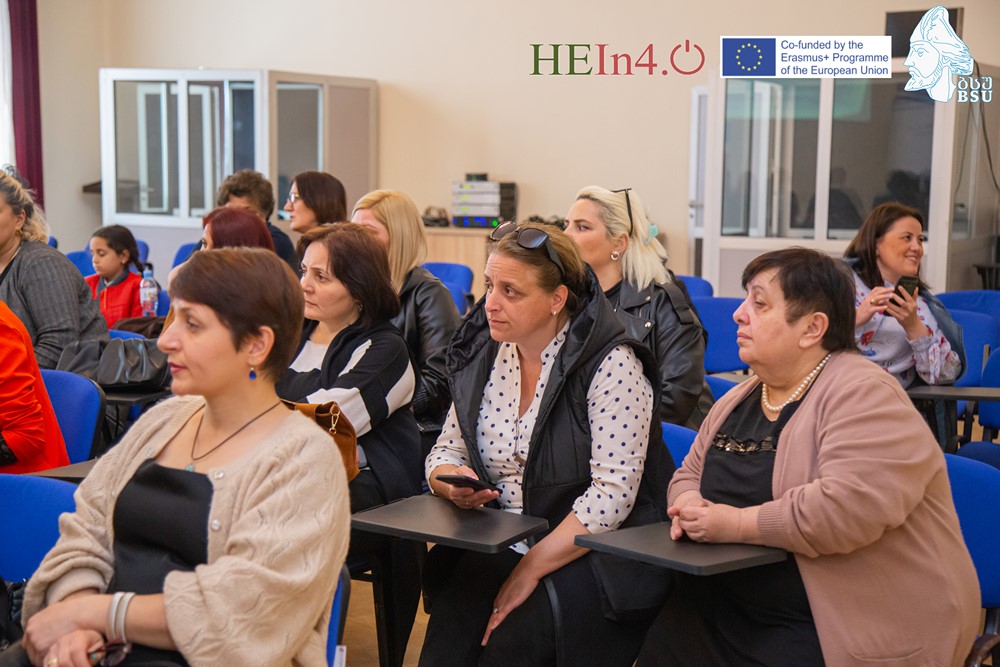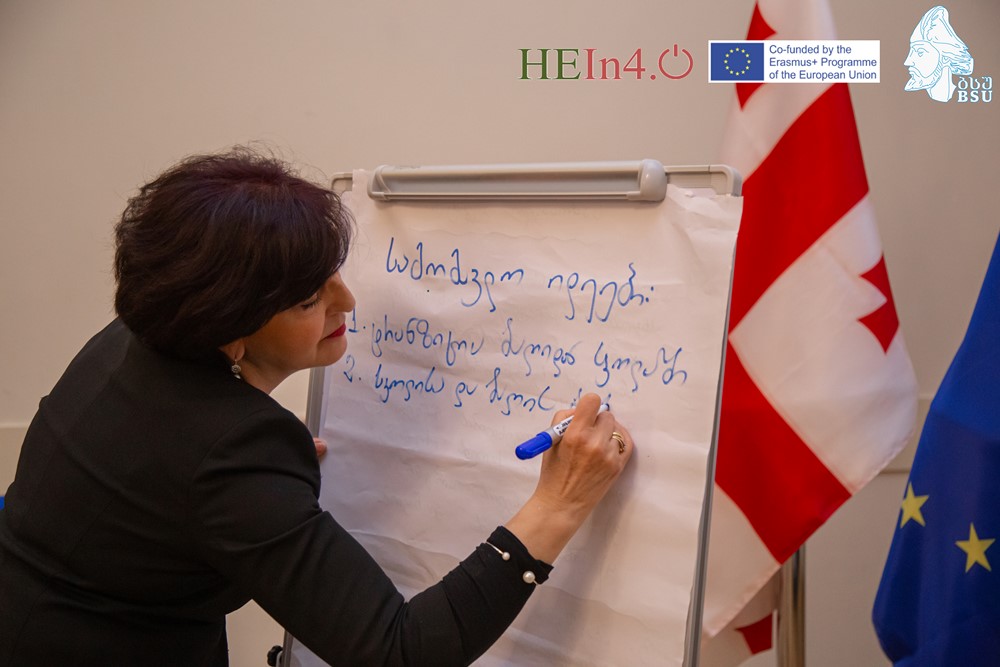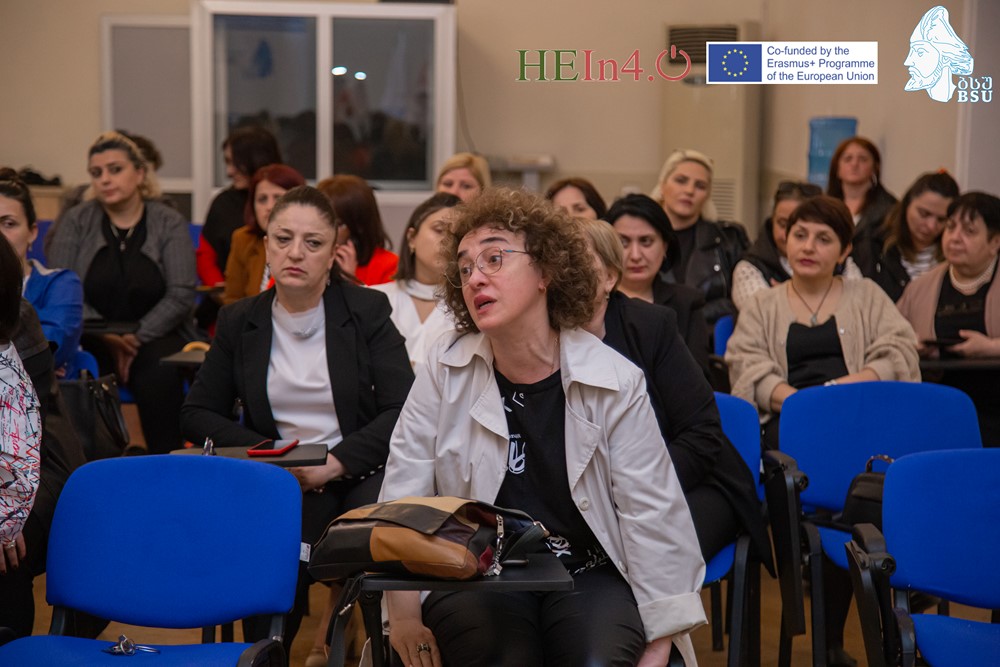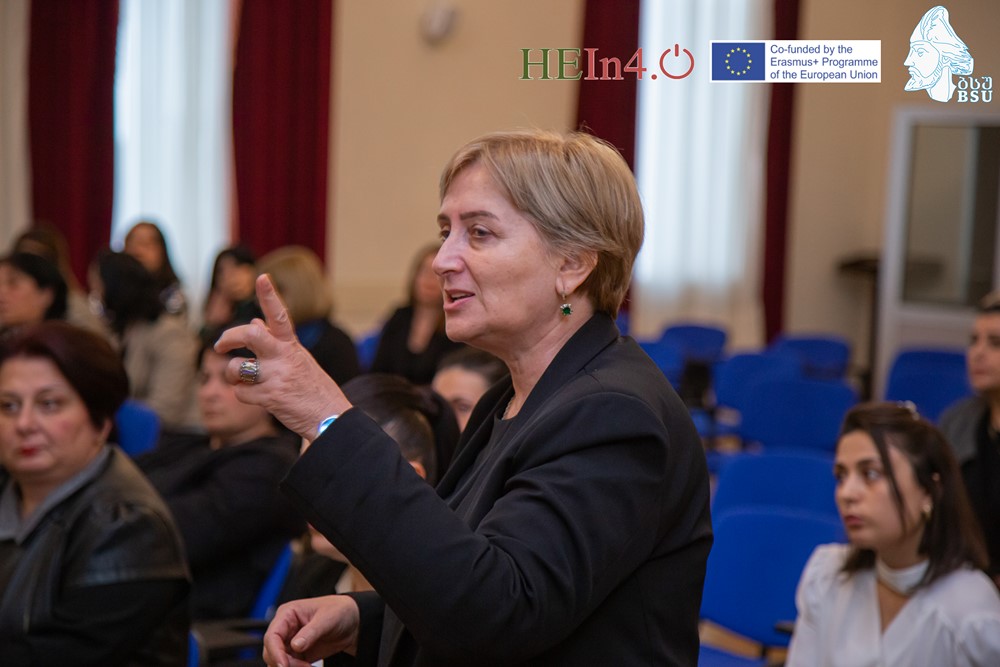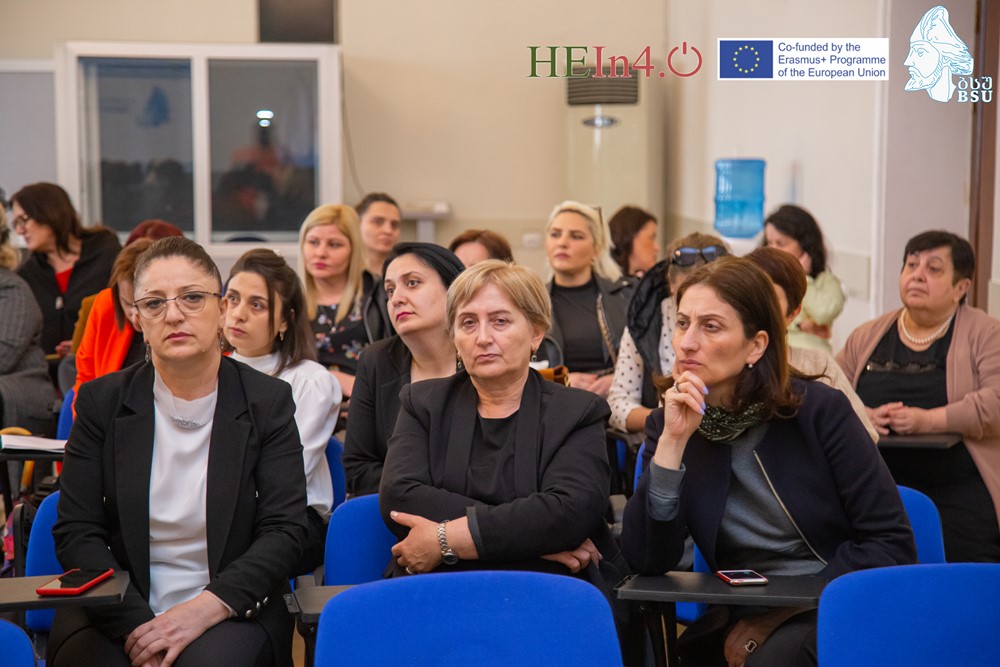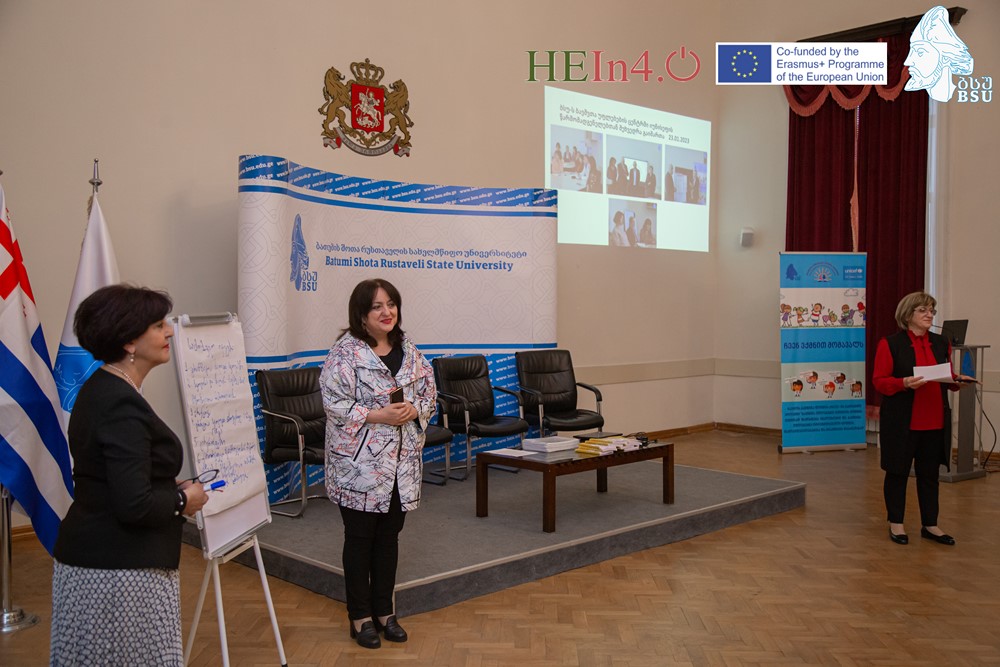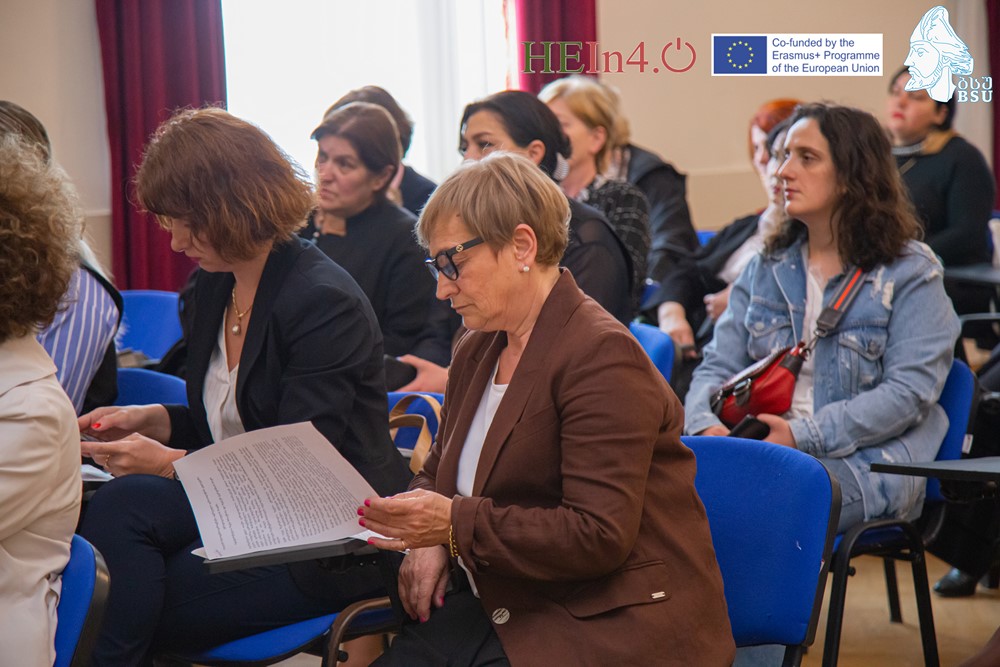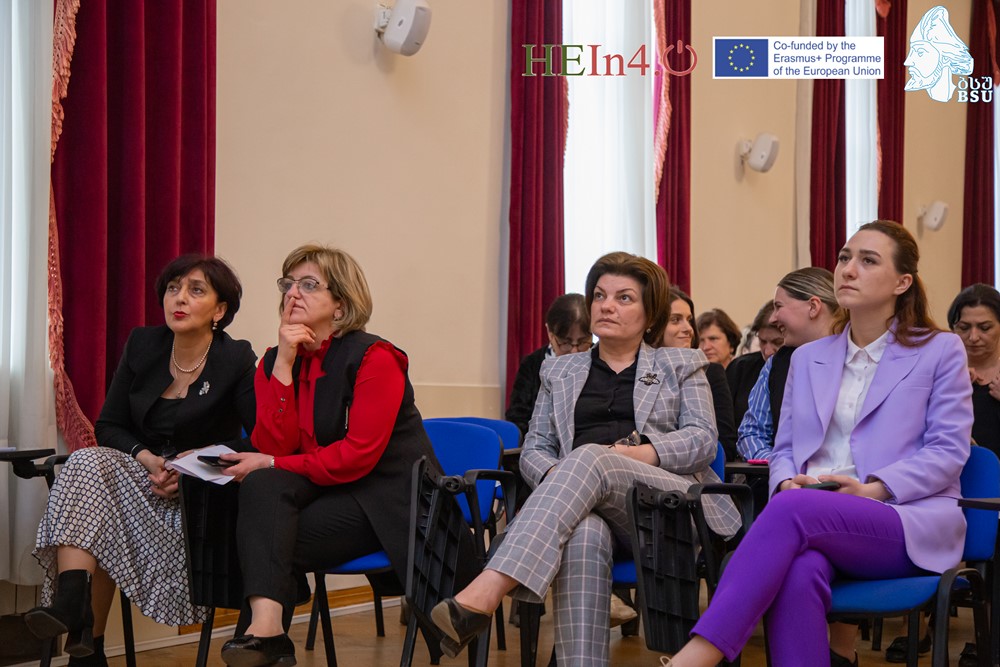Organized by the Faculty of Exact Sciences and Education of Batumi Shota Rustaveli State University, a round table was organized within the HEIN 4 project of “ERASMUS+” and the UNICEF project: “Strengthening the university’s capacity to support inclusive preschool and general education”. The purpose of the event was to study the interests of stakeholders and the prospects of further mutually beneficial cooperation within the educational programs operating in the direction of education, to promote quality education in the region, to promote innovative approaches in educational institutions, to further use the child rights center and the innovation laboratory at the faculty. The meeting was attended by the Association of Batumi and Khelvachauri Gardens, as well as representatives of schools of the Autonomous Republic of Ajara.
The administration of the faculty planned and organized a round table for the implementation of the methodology adopted by the experience of European universities in the HEIN 4 project of “ERASMUS+”.
Within the framework of the round table, the parties – academic staff of the university’s education department, educators and managers of pre-school institutions, representatives of schools – agreed on the needs of conducting joint researches, organizing joint conferences, and planning the necessary trainings for schools and kindergartens. The BSU team offered the representatives of academic institutions the prospects of further cooperation within the framework of the innovative laboratory.
Within the framework of the UNICEF project, the quantitative literacy trainer, the Dean of the Faculty of Exact Sciences and Education of BSU, Professor Lela Turmanidze, organized a number of events in order to promote the innovative laboratory created at BSU through HEIN 4 projects of “ERASMUS+”as well as to interest the youth in innovations. Within the framework of the meeting, young students in the innovation laboratory of BSU studied the possibilities of using the international educational resource CK 12, the possibilities of planning innovative projects in the direction of STEM, the possibilities of using simulations in the educational process.
